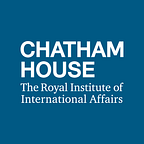The Problems Facing Ukraine: Five Things You Should Know
(1) Ukraine is currently fighting two separate battles.
Externally, it must fend off Russia and deal with the consequences of military conflict. So far, the country has not succumbed to Russian aggression, despite grievous loss of life and territory.
Internally, Ukraine has to modernize and reform its ineffective governance, fight corruption and deliver economic growth to its citizens. The modernizing forces sympathetic to European norms are attempting to fight back against the entrenched conservatism of vested interests in political and businesses elites.
(2) Seven per cent of Ukraine’s internationally recognized territory has either been annexed by Russia or is controlled by pro-Russian separatists.
The victory of the Euromaidan protest in 2014 met with a hostile response from Russia and it has since wrested control of the Crimean peninsula and the eastern part of the Donbas from Kyiv. The Minsk Protocols, signed in 2014–2015, have not delivered a credible ceasefire and a low intensity war has ensued.
The military stalemate in the east should not divert attention from other means that Russia is employing to sabotage and ‘reset’ the Ukrainian state: anti-government propaganda, targeted assassinations, the penetration of law enforcement and cyberattacks. Diplomatic formulas alone will not diminish Russia’s determination to dominate Ukraine and rid it of meaningful Western influence. Russia’s calculations will change only when core elites perceive that a continuation of the present course is no longer feasible or advantageous.
(3) Ukraine has struggled to weaken the grip of vested interests and establish a rules-based market economy domestically.
However, it has made efforts to undertake deeper and more extensive reforms in the past four years than in the previous 22 of its post-Soviet life. Basic macroeconomic stability has been achieved, with the economy returning to growth in real terms in 2016. A banking sector clean-up and the elimination of gas purchases from Russia — previously large sources of corruption — have also shrunk the space for informal practices. Reform of Ukraine’s over-centralized, excessively regulated and dysfunctional system of governance has now started. Fiscal decentralization has also increased local budgets by an average of 30 per cent per community and a new system of public procurement — ProZorro — won a World Public Procurement Award and, since its launch, has saved over UAH 31.2 billion ($1.1 billion).
(4) The outcome of Ukraine’s protracted domestic battle with corruption will ultimately define its future.
The country ranks 131 out of 176 countries in the Transparency International 2016 Corruption Perception Index. New anti-corruption agencies have been set up in part thanks to the active involvement of civil society as well as Western conditionality. However, the new National Anti-Corruption Bureau of Ukraine (NABU) and the Specialized Anti-Corruption Prosecutor’s Office (SAPO) have yet to deliver significant results.
(5) The Euromaidan protest in late 2013 was triggered by the Ukrainian government’s suspension of plans for closer integration with the EU.
Ukrainian citizens believed the deal with the EU could speed up modernization and help fight corruption. As of September 2017, Ukraine has sealed a landmark Association Agreement with the EU, opening up economic opportunities and making it clear that it sees itself as a fundamentally European country rather than a Russian satellite or tributary. This complex agreement provides for a far-reaching and privileged relationship, with the goal of Ukraine’s economic integration within the EU’s internal market. Ukraine, for its part has to align its laws and policies with those of the EU. The EU has an unprecedented political mandate for driving reform forward and is the biggest donor to Ukraine, having provided almost €11 billion during 2014–17.
